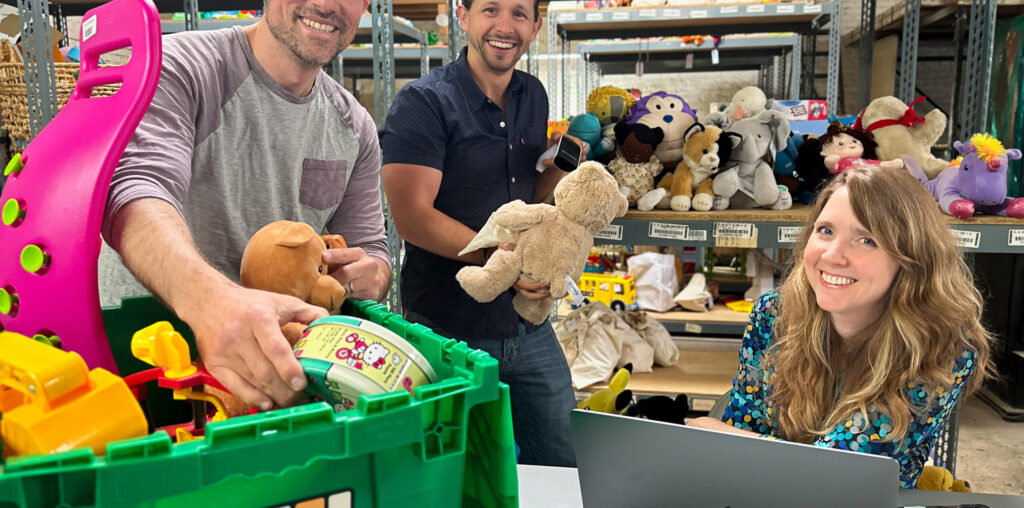As 2024 nears its end, local startups are reflecting on how it went and what their focus will be for next year.
One way to track that is to check in with the most promising local companies to see what they’re looking forward to. Every year, Technical.ly identifies the top 10 RealLIST in each of its markets, along with a list of 10 runners-up. This list was published at the beginning of the year and we’re now asking those startups how 2024 treated them.
Out of that list, we heard back from 13 2024 RealLIST Startup honorees. Most of them had some progress to report. Overall, these companies are continuing to grow, whether that be with funding, staff or advancing their products.
Nearly all respondents in Philadelphia — 92% — said they secured new funding or revenue streams in the last six months. This is slightly higher than the 88% of honorees across all five of Technical.ly’s markets that said they brought in money this year.
Philadelphia’s RealLIST Startups reported bringing in anywhere from $2,000 to $2 million over the last six months. There was a pretty even mix of money coming in from venture capital, new customers and grants or awards.
For some, new money allows for a bigger workforce, as 69% of respondents said their staff headcount increased. In the next year, 11 of the startups said they planned to increase staff headcount.
This is also slightly above the crossmarket responses: 61% of respondents across markets increased headcount since being named to the list and 80% said they plan to increase headcount over the next 12 months.
Still, that change isn’t always easy. Local transportation tech company Jawnt reported that its headcount had increased, but also that scaling its team was one of the biggest challenges in the last six months.
1to1 was the only company to say headcount decreased, which could be related to the fact that the company was acquired by Salesforce consulting agency ListEngage in May. Cofounder Pratik Desai did not disclose specifics about the deal.
Philly startups are split on remote vs. hybrid work
At this point post-pandemic, the pros and cons of in-person and remote work are well known — and everyone has strong opinions.
Six Philly respondents said their company is remote, while seven said their company is hybrid. This aligns with trends across markets, where 43% of companies said they are fully remote and 52% said they’re hybrid. Some companies, like AI-based news curator Newsprint and gold exchange platform Alloy, have distributed workforces, with team members naturally spread across the county or even internationally.
Health insurance platform StretchDollar came out of a remote company, so the team was already spread across the country and has seen great benefits, CEO and cofounder Marshall Darr said.
“You get the best talent if you’re open to remote work,” he said.
Other companies leaned into the hybrid format. This cohort of RealLIST Startups discussed the value of in-person work at a dinner Technical.ly hosted this spring. In-person time is important for building company culture and expanding your network, the founders said.
Nic Esposito, founder and CEO of product reuse company Circa Systems, said his team enjoys the flexibility of remote work but also sees the value of time in person. The company also handles physical goods and needs a space to store them, so they have a warehouse space on Kensington Avenue.
For others, there are no plans to get a brick-and-mortar HQ anytime soon.
It doesn’t make sense to have a physical office at this point in the company’s growth, said Nate Hecker, CEO of intellectual property startup Big Idea. However, they do have a coworking space and hope to expand to more physical space when it makes sense to do so, he said.
Innovative product development wins across sectors
Many of the Philly respondents shared product update stories as examples of their greatest success stories this year.
Real estate investment platform Finresi secured a partnership with financial services company RocketDollar, meaning self-directed IRA and 401k investors could access private real estate debt through its platform, said cofounder Jeff Gopshtein.
Other updates happened behind the scenes. Neighborhood street cleaning service Glitter rebuilt its backend data system, according to founder Morgan Berman. This is the first step to developing a new user portal and upgrading the company’s communication and tracking systems.
Product development could also mean branching out into new sectors altogether. Circa Systems launched its toy-buying platform Unless Kids, a new niche for the product reuse company. The startup is now working on getting users onto the platform and collecting feedback from them to make improvements, founder Esposito said.
Successful pilots, too, set these startups up for growth in 2025. Sustainability tech company Baleena, which is developing a microplastic filter for the inside of washing machines, completed its phase one pilot with a laundry brand, said CEO Julia Yan.
“This provided us with critical insights into the scalability and adaptability of our filter technology, confirming its effectiveness in diverse, real-world scenarios,” Yan said. “This success has bolstered our confidence as we move forward with potential retail partnerships and prepare for larger-scale pilots.”
Sarah Huffman is a 2022-2024 corps member for Report for America, an initiative of The Groundtruth Project that pairs young journalists with local newsrooms. This position is supported by the Lenfest Institute for Journalism.

